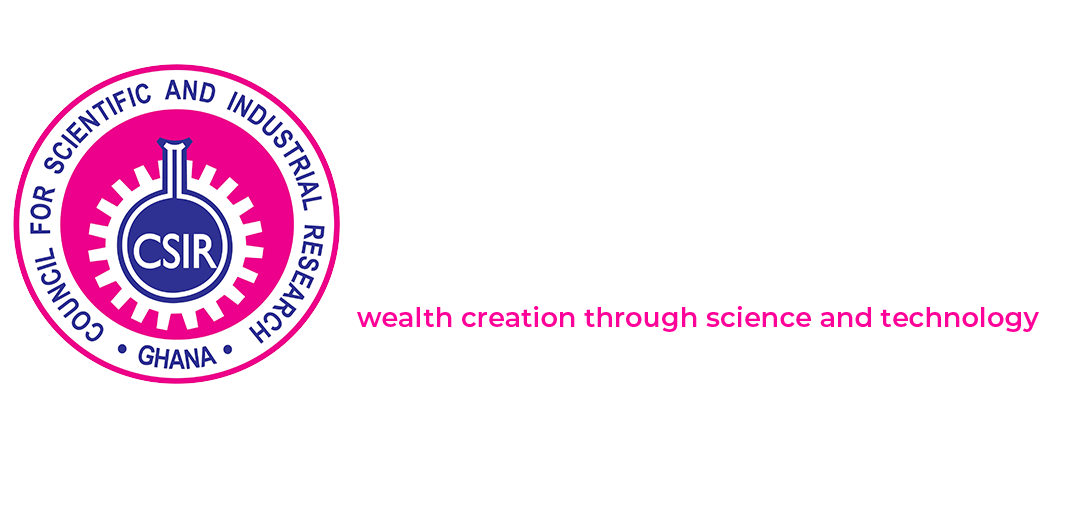Modernizing Agriculture in Ghana (MAG) - Program Description
The Modernizing Agriculture in Ghana (MAG) Program is a five-year CAD 135million initiative. Up to CAD 125million may be provided to Ghana, in accordance with the terms of this Arrangement, for the programming activities outlined in Components 1 to 4 below.
CAD 10million will be managed by the Government of Canada for the monitoring, evaluation, auditing and technical advisory services outlined in Component 5 below.
This support follows two previous Canada agriculture sector budget programs supporting the implementation of Ghana’s Food and Agriculture Sector Development Policy (FASDEP). The first program, Food and Agriculture Budget Support (FABS) provided CAD 20million per year from 2004 to 2008 followed by a one year CAD 15million bridging program leading to the Support to the Food and Agriculture Budget Support (SFASDEP) program. The CAD 110 million SFASDEP program ran from 2009 to 2013.
The MAG program evolved from FABS and SFASDEP to respond to the decentralization of Ghana’s agriculture sector implementation responsibilities to Metropolitan, Municipal and District Assemblies (MMDAs) of the Ministry of Local Government and Rural Development (MLGRD) taking into consideration lessons learned from the implementation of the earlier sector budget support programs. Through the MAG Program, it is intended that conditional budget support and technical assistance will be provided to Ghana to respond to the objectives of Food and Agriculture Sector Development Policy (FASDEP), Medium Term Agriculture Sector investment program (METASIP) and the Ghana shared Growth and Development Agenda (GSGDA II). It is designed to address productivity and value chain development management to add value to farmers’ produce for increased incomes.The MAG Program focuses attention on demand driven research and alternative methods of extension delivery with the objective of increasing productivity through intensive farming. A robust and diverse extension delivery system will facilitate the dissemination of technologies to farm households, farmer based organizations, out-growers of nucleus farms and others.
Strongly aligned with Ghana’s decentralized governance structures, the MAG Program will be delivered by Ghana through the four components listed below:
- Component 1: Support to increase the efficiency of local farmers through value chain development (estimated at $58M/5years): This component will provide direct support to Ghanaian District Agricultural Departments to provide general agricultural extension services to farmers at the local level. It is focused on increasing access to essential demand driven skills, training and knowledge for private operators in the agriculture sector. Among other deliverables, this component will focus on enhancing farmers’ business management skills and financial literacy.
- Component 2: Support to specialized agricultural services to build national market linkages and promote efficiencies in commodity development along value chains (estimated at $22M/5years): This component will provide direct support to Regional Agricultural Departments to maintain pools of highly-trained development officers who provide expertise that is more specialized than the general extension services provided at the district level. This component will also assist regions in the coordination of regional programming monitoring and evaluation of national level agricultural policies and in assessing challenges as part of a feedback loop to inform future policies, legislation and agricultural standards. This section will support research extension activities in promoting effective research response to identified farmer issues.
- Component 3: Support to agricultural research to strengthen agricultural extension services and improve agricultural productivity (estimated at $30M/5years): This component will help identify production needs and demands of smallholder farmers and define appropriate agricultural research and innovations that can be efficiently rolled-out. A key aspect of this component will be the revision and re-orientation of curriculum for training agricultural extension workers through technical assistance to Ghana’s five agricultural colleges. Funds will be provided via the Ministry of Environment, Science, Technology and Innovation (MESTI) to the Council for Scientific and Industrial Research (CSIR) in support of the work of the Crops Research Institute, the Soil Research Institute, the Animal Research Institute, the Food Research Institute, the Water Research Institute and the Savanna Agriculture Research Institute. In addition, funds will be provided to the Human Resources Directorate and Extension Services Directorate at the MOFA for capacity and extension package development and the curriculum revision. Finally, support will be provided to the Monitoring and Evaluation Directorate within MOFA for overall program monitoring.
- Component 4: Support to improve Ghana’s competitiveness in international agricultural markets (estimated at $15M/5years): This component will support technical and line Directorates at MOFA that are not included in Component 3. This Component will be used to enable the Directorates to fulfil their mandates as defined by MOFA. This will include, but not be limited to , addressing specific barriers to commercial agriculture and agri-business, the development of food safety, import/export regulations, standards in the promotion good agricultural practices for priority crops, small ruminants and poultry and implementation of the Ministry of Food and Agriculture’s (MOFA) Gender and Agriculture Development Strategy. Funding for the Chief Director’s Secretariat and the MAG Secretariat will also come from this Component.
Canada will directly manage funds for carrying out activities through the following component:
- Component 5: Canada-managed Monitoring, Evaluation, Audit and Technical Advisory Services ($10M/5years): These funds will be managed by Canada and used to fulfil a variety of functions to support the overall delivery of the MAG Program. This includes: i) retaining a Head Monitor, to be embedded within MOFA to facilitate the overall delivery and operations of the Program and manage a pool of funds to respond to technical assistance needs; ii) retaining monitors to assess the overall progress of the Program, troubleshoot and address issues and identify technical assistance needs; iii) financing a pool of funds to finance identified technical assistance needs; iv) financing a mid-term evaluation and operational review and a final summative evaluation; and v) financing annual audits of the funding provided to the Government of Ghana for Components 1 to 4.
Expected Outcomes
The ultimate outcome of the MAG Program is:
- A more modern equitable and sustainable agriculture sector that contributes to food security.
The intermediate outcomes are:
- Increased adoption of relevant, production-enhancing technologies by men and women farmers in Ghana;
- Increased adoption of market oriented approaches to farm management by farmers in Ghana, and;
- Increased private sector investment in sustainable agriculture input supply, production, marketing and processing in Ghana.
These expected outcomes are in line with the intended results of MOFA’s FASDEP and METASIP.
Beneficiaries
The immediate beneficiaries of the MAG Program will be national directorates of MOFA, Agricultural Research Institutes within the CSIR, Departments of Agriculture of Regional Coordinating Councils (RCC) and MMDAs of the MLGRD who will receive financial and technical support to implement their work plans over the five-year program period.
The ultimate beneficiaries of the increased institutional capacity will be men and women within farm households in the agriculture sector, who represent over 60% of all Ghanaians. They will have increased access to relevant and appropriate technologies and expertise which will result in increased incomes and a reduction in household food insecurity. Consumers in Ghana will ultimately benefit through access to a greater diversity of agricultural commodities in more hygienic and nutritive conditions and at cost-effective prices.
Program Governance
The implementation of the MAG Program will be governed and guided by an Executive Committee that is supported by a MAG Secretariat, as described below. This governance structure will ensure the achievement of expected outcomes through the provision of sound decision-making, program oversight, troubleshooting and effective coordination amongst all stakeholders.
MAG Executive Committee
An Executive Committee will be formed to ensure that the MAG Program is implemented with transparency and that the terms of the Arrangement between Canada and Ghana are met. It will be a decision-making body that provides the overall strategic direction for the MAG Program and that approves allocations to the various components of the program. It will also provide guidance on policy issues and bring to bear appropriate influence to support the programme to achieve its expected results and to overcome potential constraints.
The Executive Committee will be chaired by MOFA and membership will include the Government of Canada and Ministers or their delegates from MLGRD, the Ministry of Finance and the Council for Scientific and Industrial Research (CSIR).
The Executive Committee will sit at least two times a year – one session will consist of reviewing past performance, financial spending and audit outcomes in order to determine the allocation of performance tranches and confirm budget planning figures for the coming year. The second session will approve the workplans and final allocations to beneficiary institutions and set performance targets for the upcoming year. All meetings will assess general bottlenecks and challenges and identify areas and beneficiary institutions for technical assistance.
MAG Secretariat
A MAG Secretariat will be established within the Monitoring and Evaluation Directorate of MOFA to support the mandate and activities of the Executive Committee and the day-to-day activities related to the implementation of the MAG Program.
The Secretariat will be responsible for mobilizing, coordinating, tracking and overseeing the activities of Components 1 to 4 of the program. It will also be responsible for consolidating and compiling the reports that will be presented to the Executive Committee, as outlined in Paragraph VIII of the Arrangement. Finally, it will help to identify bottlenecks and issues related to program implementation, while identifying areas that would benefit from the provision of technical assistance under Component 5. These responsibilities will be achieved through working closely with the key stakeholders responsible for the implementation of the program.
Evaluations
At the end of the second year of the MAG Program implementation a Mid-term Evaluation and Operational Review will be undertaken to: i) assess the achievement of immediate outcomes and the likelihood of achieving intermediate outcomes and to ii) assess the effectiveness and functionality of the governance structures, roles and responsibilities, funding allocation formulas and guidelines governing the program. This evaluation and review will be funded by DFATD from Component 5.
An independent final summative evaluation will take place at the end of the MAG Program in order to assess its effectiveness – achievement of results at the intermediate outcomes level and contributions to the ultimate – efficiency, relevance and sustainability. It will provide findings, conclusions, recommendations and lessons learned. The final evaluation will be funded by DFATD from Component 5.
Ghana commits to cooperating with those undertaking the evaluation in terms of providing any documentation required and being available for interviews and discussion on overall progress, successes and challenges in the MAG Program.
Financial Flows
Any payments from Canada to Ghana will be made as per the conditions outlined in Paragraph IV of this Arrangement and are subject to this Arrangement. The following sections and graphic outline the process by which funds will flow to the four components of the MAG Program once the funds have been transferred to the Ghana MAG Program dedicated cedis account at the Bank of Ghana

